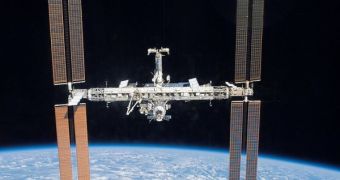With the innovation recently made in spaceflight capabilities, the question arises whether we should stick to developing orbital stations and bases of operations, or whether we should continue to send robotic probes to explore the surrounding planets, to get as much data of our surrounding solar system as humanly possible. Proponents and critics of both stances exist, as well as people who say that we should stick to observing everything around us via telescope, safe and out of harm's way.
Westfälische Wilhelms-Universität Münster physicist Dr. Kai Multhaup believes that it's our destiny to go out into the solar system and colonize other celestial bodies. "We were cave dwellers, and now office dwellers. The next step is for us to become solar system dwellers," he argues, saying that orbital space stations alone are not sufficient. And he seems to be backed up by some of America's most innovative spaceflight organizations, including Virginia Tech, the university that has recently developed a technique of building on-site bricks for a future lunar landing.
"Human spaceflight is not just about science. I see it as a driver for evolution. We are an exploratory species, and when we have the technology to go somewhere, we do. It's about culture and the human desire to evolve and expand, and to protect ourselves against catastrophes which can erase life on planets and end civilizations," the physicist adds.
He reveals that the momentum which drove humanity for more than a decade after the first manned mission to the Moon has died out right now, and that current explorations of the Moon, Mars, Saturn and Pluto using only robots sparks little interest in the general population, which is the one that's supposed to pay for all the expenses of future missions. By sending a man on another planet, he says, the excitement caused by the lunar landing could be reignited, and funds could flow again.
For the future, Multhaup envisions a larger fleet of space stations in low Earth orbit, followed by the establishment of a lunar colony. Scientific at first, the colony is to expand until it could finally house the first human settlers. It's only after that that he proposes we send people to Mars, as well as to the asteroid belt surrounding the inner planets. Moons such as Enceladus could be another target for humans, as the water they contain could make life easier in the far reaches of the solar system.

 14 DAY TRIAL //
14 DAY TRIAL //